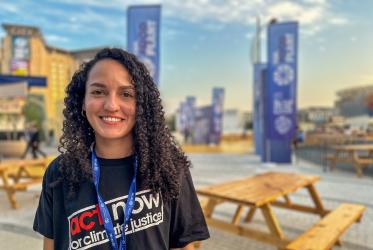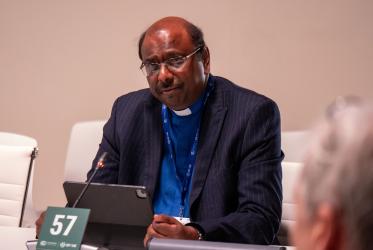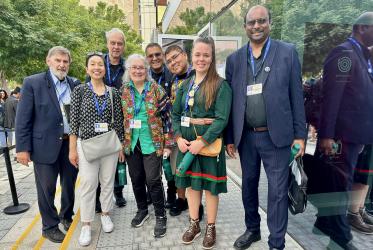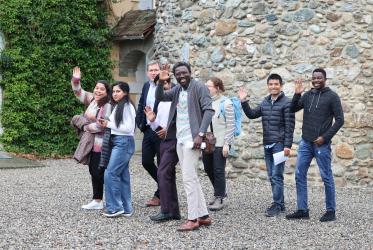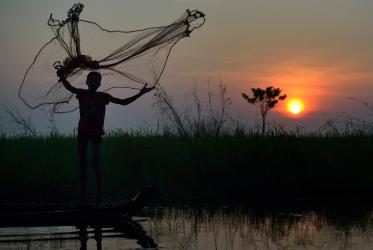Displaying 21 - 40 of 257
13 December 2023
WCC webinar explores decolonizing beauty
11 December 2023
At COP28, WCC general secretary hopes for “less talk and more walk”
01 December 2023
WCC institute encouraged rethinking theology
23 November 2023
As floods rage in eastern Africa, church acts to save the people
22 November 2023
Ahead of Her Time
Pan-African Women of Faith and the Vision of Christian Unity, Mission, and Justice
01 November 2023
Recommended Practices to Combat HIV-Related Stigma
A Guidebook for Local Faith Communities
05 October 2023
Faith Sector Implementation of the Global AIDS Strategy
05 October 2023
ACT Alliance general secretary: “equity is not negotiable”
26 September 2023
Chateau de Bossey thriving as lives are transformed
08 September 2023


